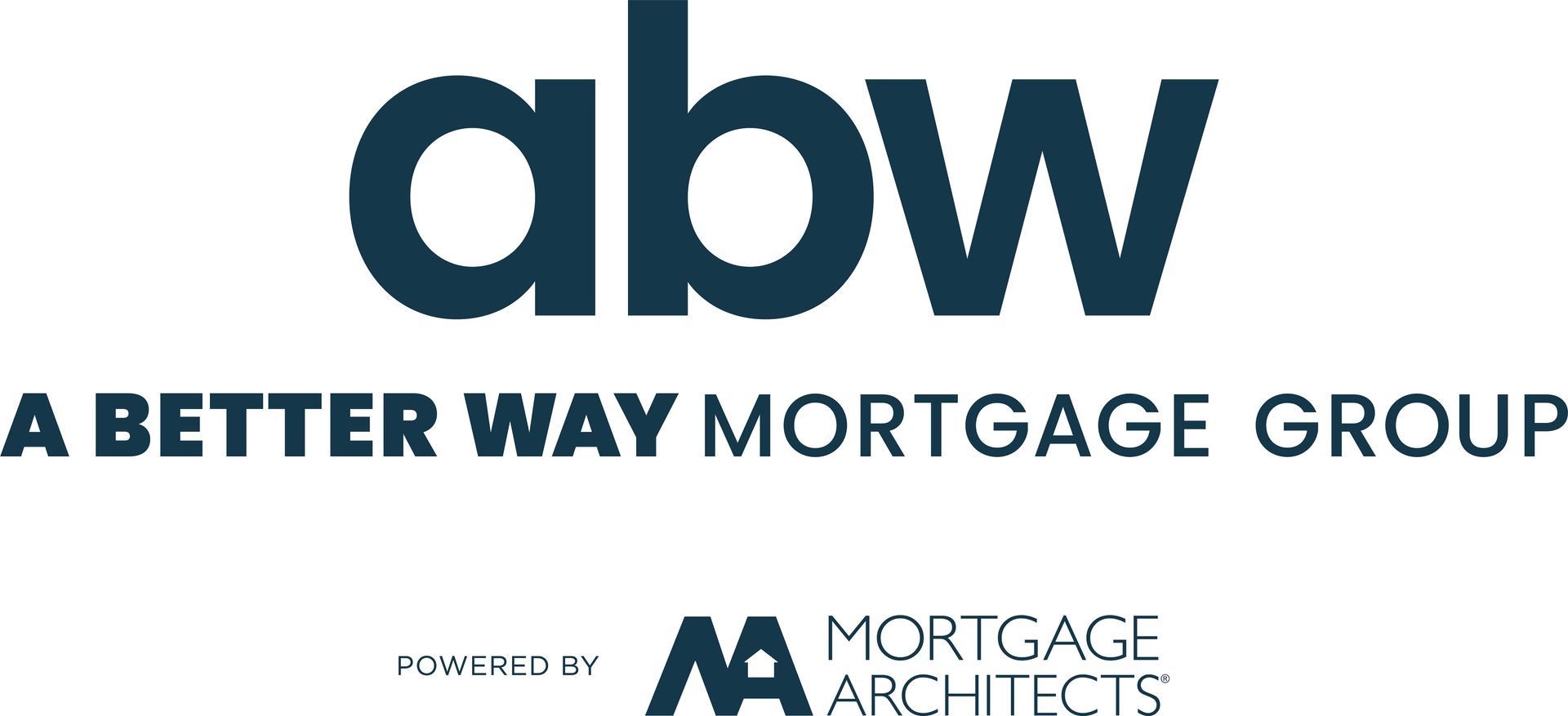3 Reasons to Use an Independent Mortgage Professional!
Jen & Cory • December 22, 2020

If you need to borrow money to finance any property, working with an independent mortgage professional will save you money, time, and provide you with better options than your bank.
And if that is the only sentence you read in this entire article, you already know all you need to. However, if you’d like to dig a little deeper, here are three reasons why working with an independent mortgage professional is in your best interest.
The best mortgage is the one that costs you the least over the life of your mortgage. An independent mortgage professional will guide you.
All mortgages are NOT created equal. Unfortunately, slick marketing and consumerism have led us to believe that the lowest “sticker price” equals the best value. As it relates to mortgages, we’re led to believe that the lowest rate equals the best mortgage. However, this is entirely wrong.
When considering which mortgage is the best for you, you’ll want to find one that will cost you the least over the total length of the mortgage. There are so many more factors to consider than just rates, such as the initial term, fixed or variable, amortization, or any potential penalty to break the mortgage (should you need to sell the property before the end of your term).
An independent mortgage professional will outline all your options, and help you find the mortgage that best suits your needs. Sometimes taking a mortgage with a bit of a higher rate makes sense if it gives you flexibility down the line to avoid huge payout penalties.
Save time and protect yourself by submitting one mortgage application, and let an independent mortgage professional find the best product for you.
Let’s face it; getting a mortgage can be challenging enough on its own. Everyone’s financial situation is a little different and making sense of lender guidelines is a full-time job in itself. When you work with an independent mortgage professional, you submit a single mortgage application, all your documentation is collected upfront, and one credit report is taken.
Your mortgage professional will then compare your mortgage application and financial situation to various lender guidelines and provide you with the best mortgage options (from their expert opinion). By allowing your mortgage professional to do all the research with multiple lenders, you save time while being provided with more options than you’d have available to you if you did all the work on your own, a win-win situation.
An independent mortgage professional works for you, on your behalf, while a bank specialist works for the bank and has the banks best interest in mind.
It’s no secret that Canadian banks make A LOT of money. It seems every quarter they turn billions of dollars in profit (despite the economic environment). They do this at the expense of their customers by charging as much interest as they can while locking clients into mortgages with fine print that costs them a lot of money down the line if they need to break their mortgage.
Bank employee’s work for the bank, they are paid by the bank to make money for the bank. In contrast, independent mortgage professionals are provincially licenced to work for their clients and are paid a standardized placement or finder’s fee for matching borrowers with lenders.
When you work with a single bank, you only have access to the products of that bank. When you work with an independent mortgage professional, you have access to all of the lenders that mortgage professional works with and all of their products.
If your goal is to find the best mortgage, one that costs you the least over time, you need product options. And independent mortgage professional provides you with this.
If you’d like to discuss mortgage financing, as an independent mortgage professional, we would love to work with you. Contact us anytime.
Recent Posts

Bank of Canada maintains policy rate at 2¼%. FOR IMMEDIATE RELEASE Media Relations Ottawa, Ontario January 28, 2026 The Bank of Canada today held its target for the overnight rate at 2.25%, with the Bank Rate at 2.5% and the deposit rate at 2.20%. The outlook for the global and Canadian economies is little changed relative to the projection in the October Monetary Policy Report (MPR). However, the outlook is vulnerable to unpredictable US trade policies and geopolitical risks. Economic growth in the United States continues to outpace expectations and is projected to remain solid, driven by AI-related investment and consumer spending. Tariffs are pushing up US inflation, although their effect is expected to fade gradually later this year. In the euro area, growth has been supported by activity in service sectors and will get additional support from fiscal policy. China’s GDP growth is expected to slow gradually, as weakening domestic demand offsets strength in exports. Overall, the Bank expects global growth to average about 3% over the projection horizon. Global financial conditions have remained accommodative overall. Recent weakness in the US dollar has pushed the Canadian dollar above 72 cents, roughly where it had been since the October MPR. Oil prices have been fluctuating in response to geopolitical events and, going forward, are assumed to be slightly below the levels in the October report. US trade restrictions and uncertainty continue to disrupt growth in Canada. After a strong third quarter, GDP growth in the fourth quarter likely stalled. Exports continue to be buffeted by US tariffs, while domestic demand appears to be picking up. Employment has risen in recent months. Still, the unemployment rate remains elevated at 6.8% and relatively few businesses say they plan to hire more workers. Economic growth is projected to be modest in the near term as population growth slows and Canada adjusts to US protectionism. In the projection, consumer spending holds up and business investment strengthens gradually, with fiscal policy providing some support. The Bank projects growth of 1.1% in 2026 and 1.5% in 2027, broadly in line with the October projection. A key source of uncertainty is the upcoming review of the Canada-US-Mexico Agreement. CPI inflation picked up in December to 2.4%, boosted by base-year effects linked to last winter’s GST/HST holiday. Excluding the effect of changes in taxes, inflation has been slowing since September. The Bank’s preferred measures of core inflation have eased from 3% in October to around 2½% in December. Inflation was 2.1% in 2025 and the Bank expects inflation to stay close to the 2% target over the projection period, with trade-related cost pressures offset by excess supply. Monetary policy is focused on keeping inflation close to the 2% target while helping the economy through this period of structural adjustment. Governing Council judges the current policy rate remains appropriate, conditional on the economy evolving broadly in line with the outlook we published today. However, uncertainty is heightened and we are monitoring risks closely. If the outlook changes, we are prepared to respond. The Bank is committed to ensuring that Canadians continue to have confidence in price stability through this period of global upheaval. Information note The next scheduled date for announcing the overnight rate target is March 18, 2026. The Bank’s next MPR will be released on April 29, 2026. Read the January 28th, 2026 Monetary Report

For most Canadians, buying a home isn’t possible without a mortgage. And while getting a mortgage may seem straightforward—borrow money, buy a home, pay it back—it’s the details that make the difference. Understanding how mortgages work (and what to watch out for) is key to keeping your borrowing costs as low as possible. The Basics: How a Mortgage Works A mortgage is a loan secured against your property. You agree to pay it back over an amortization period (often 25 years), divided into shorter terms (ranging from 6 months to 10 years). Each term comes with its own interest rate and rules. While the interest rate is important, it’s not the only thing that determines the true cost of your mortgage. Features, penalties, and flexibility all play a role—and sometimes a slightly higher rate can save you thousands in the long run. Key Questions to Ask Before Choosing a Mortgage How long will you stay in the property? Your timeframe helps determine the right term length and product. Do you need flexibility to move? If a work transfer or lifestyle change is possible, portability may be important. What are the penalties for breaking the mortgage early? This is one of the biggest factors in the real cost of borrowing. A low rate won’t save you if breaking costs you tens of thousands. How are penalties calculated? Some lenders use more borrower-friendly formulas than others. It’s not easy to calculate yourself—get professional help. Can you make extra payments? Prepayment privileges allow you to pay off your mortgage faster, potentially saving years of interest. How is the mortgage registered on title? Some registrations (like collateral charges) can limit your ability to switch lenders at renewal without extra costs. Which type of mortgage fits best? Fixed, variable, HELOCs, or even reverse mortgages each have their place depending on your financial and life situation. What’s your down payment? A larger down payment could reduce or eliminate mortgage insurance premiums, saving thousands upfront. Why the Lowest Rate Isn’t Always the Best Choice It’s tempting to chase the lowest rate, but mortgages with rock-bottom pricing often come with restrictive terms. For example, saving 0.10% on your rate may put a few extra dollars in your pocket each month, but if the mortgage has harsh penalties, you could end up paying thousands more if you break it early. The goal isn’t just the lowest rate—it’s the lowest overall cost of borrowing . That’s why it’s so important to look beyond the headline number and consider the whole picture. The Bottom Line Mortgage financing in Canada is about more than rate shopping. It’s about aligning your mortgage with your financial goals, lifestyle, and future plans. The best way to do that is to work with an independent mortgage professional who can walk you through the fine print and help you secure the product that truly keeps your costs low. If you’d like to explore your options—or review your current mortgage to see if it’s really working in your favour—let’s connect. I’d be happy to help.


